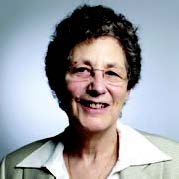 On September 18, the eighth annual National HIV & Aging Awareness Day will highlight the massive change in the epidemic: half of all people with HIV in the U.S. will be over 50 this year. That number will rise to 70% by 2020. Organizations throughout the country are holding events to acknowledge the struggles and triumphs of older adults with HIV—both newly diagnosed and long-term survivors.
On September 18, the eighth annual National HIV & Aging Awareness Day will highlight the massive change in the epidemic: half of all people with HIV in the U.S. will be over 50 this year. That number will rise to 70% by 2020. Organizations throughout the country are holding events to acknowledge the struggles and triumphs of older adults with HIV—both newly diagnosed and long-term survivors.
People with HIV are living longer lives due to advances in HIV treatment. But while the new meds can control HIV itself, they can’t eliminate the inflammation that HIV causes. As a result, many older adults with HIV are developing illnesses that usually happen much later in life. These include heart disease, cancers, bone fractures, and depression. It can be quite challenging to manage the complex treatment regimens these multiple chronic illnesses require. These older adults are often isolated and have 3–5 times the rate of depression of their HIV-negative peers.
Older gay men face what therapist James Masten calls the “triple threat”: homophobia, ageism, and HIV stigma—the last most notably from HIV-negative gay men, who can treat them like pariahs. That can have a great impact on their ability to manage the multiple conditions they face. The question becomes, what kind of life are they living? We must work not only to prolong life, but also to promote a good quality of life.
In San Francisco, it’s estimated that 68% of people with HIV over 50 are controlling their virus with medication. That’s higher than other age groups and higher than the national average, but we still have work to do ensuring to achieve the goal of “Getting to Zero” new HIV infections, zero HIV deaths, and zero HIV stigma.
Local HIV organizations need to work more closely together and create new ways of including adults over 50 in testing campaigns for HIV and HCV, as well as helping them get into and stay in care. We must ensure that the services we provide are culturally appropriate and inclusive of transgender groups, women, and communities of color.
HIV organizations must partner with aging service providers, since their expertise in aging is critical to this effort. It is time for HIV and aging providers to find effective ways to reach isolated seniors and long-term survivors who often face depression, loneliness, and the effects of trauma. Despite their numerous challenges, many older adults with HIV have shown incredible resilience and strength. We need to understand how they’ve succeeded and learn from them if we are to achieve better health outcomes for those older adults with HIV who need our help.
This summer, ACRIA launched a new prevention campaign in the “Age is Not a Condom” series. While the majority of older adults with HIV were infected years ago, too many people over 50 are still getting infected. There are simply not enough social messaging campaigns targeting older adults, so ACRIA’s latest campaign was designed to counter the myth that older adults are not sexually active.
Sex is an important part of healthy aging, and many adults have active sex lives well into their 70s, 80s, and beyond. The 2015 campaign highlights the fact that older adults have different kinds of sex—casual, romantic, straight, gay, curious, etc. It’s important to recognize that people can be sexually active at any age, and if they do have sex, being older does not protect them against STIs or HIV.
San Francisco is at the forefront of HIV and aging issues and has an HIV & Aging workgroup (under the Long-term Care Coordinating Council & DAAS). The workgroup holds monthly meetings and works to mobilize the community around advocacy issues. Let’s Kick ASS (AIDS Survivor Syndrome), a San Francisco-based national grassroots organization, recently issued the HIV Long-Term Survivors Declaration, subtitled “A Vision for Our Future.” They will be celebrating their third anniversary on September 18.
Also on September 18: Positive Resource Center, AIDS Legal Referral Panel, Shanti, Westside Community Services and others who collaborated on the “We’ve Got This” series are holding an event focusing on long-term survivors. For more info, please contact: Vaughn Villaverde at VaughnV@positiveresource.org
Finally, ACRIA has initiated ROAH 2.0 (a follow-up to our 2005 Research on Older Adults with HIV study) on a national level, including the San Francisco/Bay Area. The advisory council for the study includes a national network of researchers, service providers, advocates, and HIV long-term survivors who met for the first time last month to design the ROAH 2.0 questionnaire.
Hanna Tessema, MPH, MSW, is the Associate Director of the Training Center at ACRIA. She has been managing local and national HIV & Aging initiatives for ACRIA since 2007.
LGBT Resources for Seniors
Dr. Marcy Adelman oversees the Aging 
in Community column.
For her summary
of current LGBT senior challenges and opportunities, please go to:
sfbaytimes.com/challenges-and-opportunties
Recent Comments